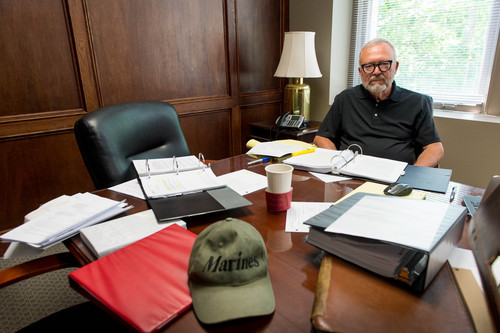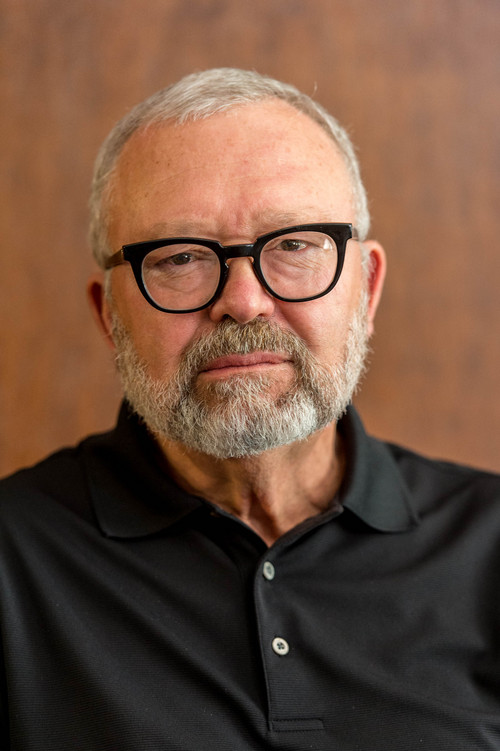This is an archived article that was published on sltrib.com in 2014, and information in the article may be outdated. It is provided only for personal research purposes and may not be reprinted.
A Utah lawyer suing the FBI over its alleged inadequate search under the federal Freedom of Information Act (FOIA) for videotapes related to the Oklahoma City bombing said Tuesday that one of his witnesses has backed out of testifying after being visited by government officials last week.
On the second day of a bench trial in Salt Lake City, attorney Jesse Trentadue told U.S. District Judge Clark Waddoups that he had just learned John Matthews would not be testifying. He urged Waddoups to order an investigation into who allegedly contacted Matthews with suggestions that he not appear at the trial.
"I think this is a serious matter," Trentadue said, adding that in 40 years of practicing law nothing like this had happened to him.
Waddoups agreed and told the Department of Justice attorneys representing the FBI to "get to the bottom of this" by inquiring into whether anyone from the government interfered with Matthews' planned court appearance.
The DOJ attorneys indicated they had not known about the alleged visit or the man's decision not to testify.
According to court documents, Matthews was expected to testify about a major government investigation known as "Patriot Conspiracy," or PATCON, and how evidence was gathered and records pertaining to evidence were prepared or maintained by the FBI at the time of the Murrah Federal Building bombing.
Trentadue filed suit in 2008 against the FBI and the CIA, which since has been dropped as a defendant, claiming the agencies failed to locate and turn over all the materials he requested, including a videotape that he believes shows bomber Timothy McVeigh and another man exiting a Ryder truck in front of the Murrah building and the detonation of explosives.
He is asking for an order allowing him to search for videotapes and documents at FBI locations, including field offices in Oklahoma City and Los Angeles, and requiring the bureau to produce the records he requested. He knows more tapes exist from public documents he already has and news reports, Trentadue says.
The FBI says it has no tape of the explosion and insists it has done a reasonable search for the videotapes and other materials. The agency says if Waddoups does conclude its searches were inadequate, he should allow the agency, rather than Trentadue, to conduct one or more additional searches.
Trentadue believes the records will provide information about the death of his brother in a federal prison in Oklahoma City a few months after the April 19, 1995, bombing that killed 168 people. The death of Kenneth Trentadue was ruled a suicide but his family believes he was mistaken for a bombing conspirator and killed in an interrogation that got out of hand. Federal officials deny the allegation.
The trial before Waddoups is focused on the adequacy of the searches in response to Trentadue's FOIA request. Government witnesses have testified they spent weeks looking for videotapes and documents in the Oklahoma warehouse that holds the massive amount of evidence in the bombing investigation, called OKBOMB.
Trentadue believes that some of the evidence could be in locations outside Oklahoma. But Karen Thiessen, who has served as chief of the FBI Evidence Control Unit, and W. Mark Whitworth, chief of the Explosives Unit, both testified Tuesday they are confident there is no bombing-related evidence at those Washington, D.C., locations.
Also testifying Tuesday was Diane Lang, an FBI evidence technician in Oklahoma City, who said all of the OKBOMB evidence is stored at the warehouse. Under FBI policy, the evidence is inventoried annually and everything is accounted for, including more than 700 videotapes, she said.
Lang said she spent approximately 90 hours doing a computer and manual search for the requested tapes, which included watching 15 to 20 that did not include labels indicating whether they fell within the time and subject parameters of the FOIA request. As part of that effort, she used a spreadsheet of videotapes in the OKBOMB file prepared by FBI forensic accountant Linda Vernon, who testified Monday that she devoted more than 85 hours in the search.
She is convinced from her search that all videotapes that were responsive to the FOIA request were released, Lang said.
Twitter: @PamelaMansonSLC





